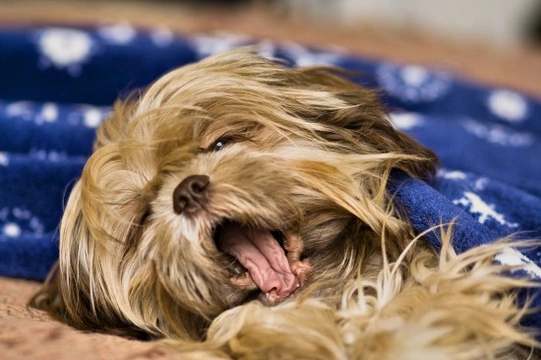
Finding out more about the Shorkie hybrid dog breed
Hybrid dogs, designer dogs or cross breeds are just some of the various terms used to refer to the deliberate crossing of two unrelated dog breeds to produce a half-and-half dog, and some common hybrid crosses are even more popular today than many purebred pedigree breeds. The most common crosses involve a poodle with something else, leading to terms such as the Labradoodle and Cockapoo, and working out from the name what the ancestry of any given dog actually is can be something of a challenge!
As well as the ubiquitous poodle crosses that are commonly found, many smaller dog breeds are also popular within hybrid crossings too, and one small cross that is fast becoming ever more popular within the UK is the Shorkie. The Shorkie is the result of the crossing of a Shih-Tzu and a Yorkshire terrier, or any second or subsequent generation crossing of a Shorkie with another Shorkie, or back to one of the two parent breeds.
If you are wondering if a Shorkie might be a good choice of small dog and you are considering finding out more about them with a view to ownership, in this article we will cover some of the basics of the Shorkie, in terms of their appearance, temperament and core traits. Read on to learn more about the Shorkie.
Is the Shorkie a pedigree dog?
Just because a type of dog may appear to be fairly uniform and has a name of its own does not mean that they are a recognised pedigree breed, even if both of their parents were pedigrees of their respective breeds. The Shorkie is just one of many hybrid or cross breed dogs, none of which are recognised as breeds in their own right by formal organisations such as The Kennel Club.
How large are Shorkies?
The size of the Shorkie will not be uniform across the board, and will largely depend on the size of their two parent dogs. They will fall between the height and weight range of their two component breeds, although there can be a reasonable amount of variance among their sizes, even between dogs from the same litter.
The average Yorkshire terrier weighs up to 7lb, while the Shih Tzu is rarely smaller than 9lb, and can weigh up to around 15lb on average. The Shorkie tends to weigh anywhere between 5lb-12lb, although they may potentially be larger or even possibly a little smaller. Both the Shih-Tzu and the Yorkshire terrier are small dogs, and so the Shorkie will tend to stand between 5-9” tall at the withers.
The Shorkie coat
Both the Shih-Tzu and the Yorkshire terrier have long fur, although the Yorkie’s fur texture tends to be sleek and smooth while the Shih-Tzu is wavy and slightly fluffy. The Shorkie will generally sport a reasonably long and silky coat, potentially with a slight wave to it, and so they will require regular brushing and grooming to keep their coats in good condition. They may also benefit from regular trips to the grooming parlour for bathing and possibly, trimming, in order to keep the coat neat, clean and manageable.
Shorkie colours
The Yorkshire terrier can be seen in either black and tan or blue, while the Shih-Tzu can be found in a much wider range of shades, including white, red and cream. This means that most Shorkies will have at least two colours in their coats, and possibly more, but it is also possible that the Shorkie puppy will be just one colour, being any of the potential colours that can be seen in either or the two parent breeds.
The Shorkie personality
The Yorkshire terrier and the Shih-Tzu are rather different in terms of their personalities and temperaments, with the Shih-Tzu tending to be sweet, gentle and quiet yet playful, while the Yorkshire terrier tends to be lively, energetic and always on the lookout for something to do!
The personality of the Shorkie, therefore, can vary considerably from dog to dog, but they tend to be rather lively, very loving, generally friendly, and not overly shy.
The Shorkie will need to be provided with at least two half hour walks per day, but they do not have the most strenuous of exercise requirements.
Shorkie health
The Shorkie benefits from hybrid vigour, which means that health problems that tend to be prevalent in both of their parent breeds are less likely to occur within the Shorkie itself. However, any of the hereditary health problems that can affect either of the parent breeds may also present itself within the Shorkie, something that all potential owners should be aware of.
The Yorkshire terrier may suffer from liver problems, dental problems, and skull development abnormalities, while the Shih-Tzu may potentially suffer from respiratory issues, due to their short muzzles. Both the Yorkie and the Shih-Tzu may potentially inherit spinal problems too, something that all Shorkie owners should also be aware of.
If your looking to buy or adopt a Shorkie dog or puppy in the UK, please visit our Shorkie Dogs section.



